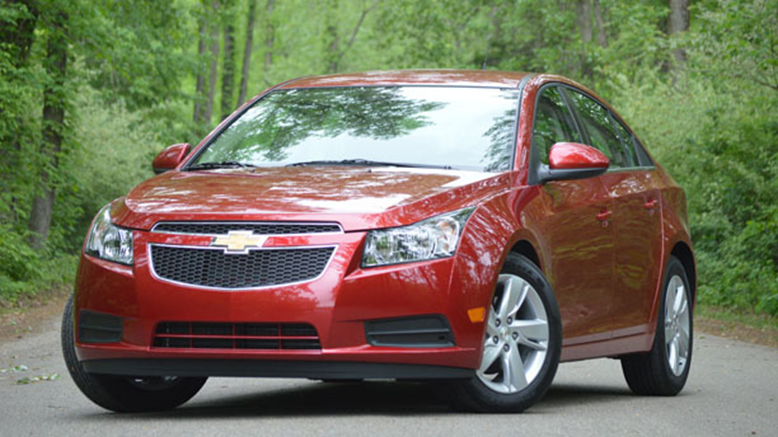Celebrities and politicians don’t seem interested in doing a photo-ops with diesel cars like they are with electric and hybrid cars. But car companies are forging ahead anyway with new diesel vehicles, hoping they can convince more car shoppers to try fuel-saving technology other than gas-electric hybrids.
The collective memory of the American public who started driving before Ronald Reagan was President when it comes to diesel-powered cars is one of slow, stinky, greasy, clattering devices of ill-mannered automotive behavior. Indeed, if one took a snap-shot of diesels on American roads in 1977, this impression would be accurate.
Not today. The average diesel car of 2013 makes lots of power and torque, purrs quietly, accelerates with muffled certitude and returns amazing fuel economy, especially on the highway.
For several years now, gas-electric hybrids like Toyota’s hugely successful Prius have sucked up most of the oxygen in the alternative engine technology room. But technology stops for no one. And the new breed of clean diesels have become credible alternatives to hybrids by using more advanced fuel systems, more powerful electronics and better-designed mechanical bits; plus, you lose no cargo or passenger room with a diesel due to bulky electric batteries required in hybrids.
The sophistication of clean diesels, electrics and gas-electric hybrids, and their reliance on electronics to achieve better mileage is what prompted AOL Autos to include fuel economy as a category for our Technology of the Year Award, which is presented at the Consumer Electronics Show this January.
Let’s Torque
On the power front specifically, modern diesels make an inordinate amount of torque compared to gasoline engines. Simply put, torque is the work an engine does and that diesels have it in spades. You want to get moving quickly and out of the way or merge fast onto a highway? Lots of torque is what you need, not horsepower. Diesels give a four-cylinder engine the get-up-and-go of a six-cylinder engine with better fuel economy than a gas-powered four-cylinder.
Cars with diesel engines provide far greater driving range between fill-ups than their gasoline-powered counterparts too. Because diesels get far greater fuel economy on the highway, they can travel up to twice as far on one stop for fuel. Using its EPA highway economy figure of 45 mpg, the upcoming Mercedes E250 diesel sedan, for example, will travel 949 miles on one tank of fuel. That means going from Chicago to New Orleans on one fill-up. You can bisect America non-stop.
Most high-tech modern diesels are from Europe and there are several reasons why. Diesels are far more common on European roads than American streets because governments in Europe incentivize the sale of diesels by taxing them at a much lower rate on vehicle registration than gasoline engine-passenger cars. Also, fuel companies steer the European public toward them with lower costs and taxes on the fuel itself.
Detroit is Dieseling Again
A notable exception to the Euro-centric nature of diesels is the new Chevy Cruze diesel offering 46- mpg on the highway for $25,695. The Cruze is a direct competitor to the VW Jetta TDI diesel, which garners 42-mpg highway and costs $24,295 when equipped with the same automatic transmission that’s standard equipment on the Cruze.
All silver linings have a cloud, though. Diesels do cost more on initial price that a gasoline counterpart, just like a gas-hybrid. Couple this with a slightly higher per-gallon cost for diesel fuel over gasoline, and it extends one’s time frame (or distance in miles) to recover the additional cost of a diesel-powered car.
Hybrids fare better in city-focused driving economy over diesels largely because they can operate on battery power using no fuel at all, whereas diesel economy shines on the open road. That does not mean all diesels are expensive, though. From the VW Jetta, at $23,195 to the Audi A8 TDI at $82,500, there’s a vast spread of diesels in many price categories. Mercedes-Benz, Chevy, BMW, Jeep also offer diesels. And Mazda will have a diesel sedan in early 2014.
Notable diesels for popularity and affordability are the Volkswagen quartet of Golf, Jetta, Passat and Beetle, all using the same 2.0-liter engine returning anywhere from 39 to 42 mpg and costing from $23,195 for the Jetta to $26,295 for the larger Passat. Meanwhile, one of the more expensive diesels at the luxury end of the spectrum is Audi’s large A8 sedan for $82,500, yet it returns a respectable 36 mpg on the highway.
Also, consider the overall numbers. By the end of 2012, the most recent stats available, there were 6,658,399 diesel vehicles (not including commercial vehicles like big-rig trucks) registered while there were 2,295,500 hybrids registered the U.S.; this, despite the market having far more hybrid models offered.
While hybrid sales are growing and still get most of the publicity, the growth of diesel sales are telling that the message is getting through to a growing number of car buyers. Sales of diesels increased by 24.3 percent between 2010 and 2012.
You might say that all the diesel clatter being made today is not about sound, smell and sloth, but about sales.



